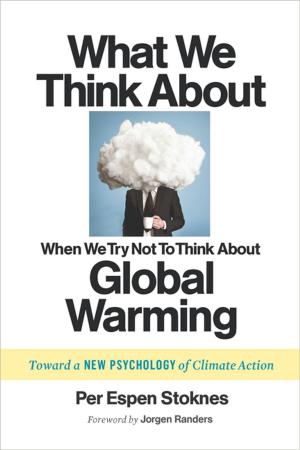The End of Stationarity
Searching for the New Normal in the Age of Carbon Shock
Nonfiction, Science & Nature, Science, Earth Sciences, Business & Finance, Economics| Author: | Mark Schapiro | ISBN: | 9781603586948 |
| Publisher: | Chelsea Green Publishing | Publication: | May 17, 2016 |
| Imprint: | Chelsea Green Publishing | Language: | English |
| Author: | Mark Schapiro |
| ISBN: | 9781603586948 |
| Publisher: | Chelsea Green Publishing |
| Publication: | May 17, 2016 |
| Imprint: | Chelsea Green Publishing |
| Language: | English |
Scientists have devised a new term to explain the turmoil caused by climate change: the end of stationarity. It means that our baselines for rainfall, water flow, temperature, and extreme weather are no longer relevant—that making predictions based on past experience is no longer possible. But climate change has upended baselines in the financial world, too, disrupting the global economy in ways that are just becoming clear, leaving us unable to assess risk, and causing us to fundamentally re-think economic priorities and existing business models.
At the heart of that financial unrest is the role of carbon, and as the world moves toward making more and more polluters pay to emit it, a financial mystery unfolds: What are the costs? Who has the responsibility to pay for them? Who do you pay? How do you pay? And how will those costs ripple through the economy?
These are the questions veteran journalist Mark Schapiro attempts to answer as he illuminates the struggle to pinpoint carbon's true costs and allocate them fairly--all while bumping up against the vagaries of the free market, the lobbying power of corporations, the political maneuverings of countries, and the tolerance of everyday consumers buying a cup of coffee, a tank of gas, or an airplane ticket.
Along the way, Schapiro tracks the cost of carbon through the drought-ridden farmland of California, the jungles of Brazil, the world's greatest manufacturing center in China, the carbon-trading center of Europe, and the high-tech crime world that carbon markets have inspired. He even tracks the cost of carbon through the skies themselves, where efforts to put a price tag on the carbon left by airplanes in the no-man's land of the atmosphere created what amounted to a quiet but powerful global trade war.
The End of Stationarity deftly depicts the wild, new carbon economy, and shows us how nations, emerging and developed, teeter on its brink. Originally published in hardcover as Carbon Shock, the book is updated throughout and includes a new afterword, based on the Paris climate talks.
Scientists have devised a new term to explain the turmoil caused by climate change: the end of stationarity. It means that our baselines for rainfall, water flow, temperature, and extreme weather are no longer relevant—that making predictions based on past experience is no longer possible. But climate change has upended baselines in the financial world, too, disrupting the global economy in ways that are just becoming clear, leaving us unable to assess risk, and causing us to fundamentally re-think economic priorities and existing business models.
At the heart of that financial unrest is the role of carbon, and as the world moves toward making more and more polluters pay to emit it, a financial mystery unfolds: What are the costs? Who has the responsibility to pay for them? Who do you pay? How do you pay? And how will those costs ripple through the economy?
These are the questions veteran journalist Mark Schapiro attempts to answer as he illuminates the struggle to pinpoint carbon's true costs and allocate them fairly--all while bumping up against the vagaries of the free market, the lobbying power of corporations, the political maneuverings of countries, and the tolerance of everyday consumers buying a cup of coffee, a tank of gas, or an airplane ticket.
Along the way, Schapiro tracks the cost of carbon through the drought-ridden farmland of California, the jungles of Brazil, the world's greatest manufacturing center in China, the carbon-trading center of Europe, and the high-tech crime world that carbon markets have inspired. He even tracks the cost of carbon through the skies themselves, where efforts to put a price tag on the carbon left by airplanes in the no-man's land of the atmosphere created what amounted to a quiet but powerful global trade war.
The End of Stationarity deftly depicts the wild, new carbon economy, and shows us how nations, emerging and developed, teeter on its brink. Originally published in hardcover as Carbon Shock, the book is updated throughout and includes a new afterword, based on the Paris climate talks.















